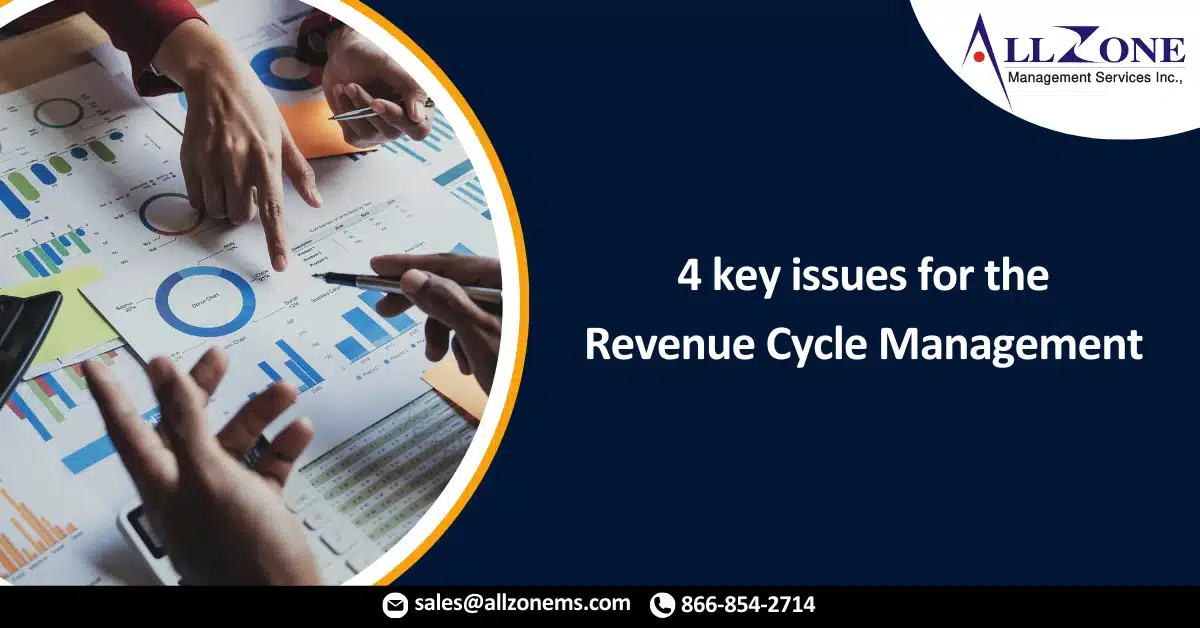Taya Moheiser, CMPE, CMOM, owner of ITS Healthcare, and Kem Tolliver, CMPE, CPC, CMOM, president of Medical Revenue Cycle Specialists to share the top trends they’re following right now.
KEY TAKEAWAYS
- Mental health billing will continue to evolve.
- Billing directly to Medicare for physician assistants will take center stage.
- Be sure to educate your revenue cycle staff on surprise billing.
- Beware of virtual credit care billing.
The upcoming surprise billing rule is the kind of issue that commands all the attention and oxygen, and for good reason: We’re just weeks away from its partial implementation and it’s still being heavily challenged and debated by some of the biggest players in the healthcare game.
But it’s not the only issue that revenue cycle experts are looking toward as 2022 approaches. That’s why we’ve asked Taya Moheiser, CMPE, CMOM, owner of ITS Healthcare, and Kem Tolliver, CMPE, CPC, CMOM, president of Medical Revenue Cycle Specialists to share the top trends they’re following right now.
Moheiser and Tolliver are guests on this year’s final episode of the HealthLeaders Revenue Cycle Podcast, which is out today. Don’t miss our full conversation with them. Until you have a chance to listen, here’s a sneak peak of what they have to say about just a few of the top issues for revenue cycle in 2022. Their comments have been lightly edited.
- MENTAL HEALTH
Tolliver: “With mental health, you see a lot of emphasis on mental health services, behavioral health services, in the CMS final rule, and in the upcoming CPT and HCPCS [Healthcare Common Procedure Coding System] changes. So, what I would recommend is that as folks are thinking about service lines, and even surface diversification within their organizations, pay really close attention to what the federal government and what local governments are doing to expand mental health services.
We’re seeing a ton of tele-behavioral health services, and that’s also going to expand the providers who are in this space. So, make sure that if your organization does decide to branch out into mental health services, that you’re taking a look at all of the requirements and guidelines for not only your commercial insurances, but for your Medicaid providers, as well as CMS on what those rules and regulations are going to be within taxonomy codes, service delivery, [and] licensure, making sure that you understand the codes, the CPT codes that certain providers are going to be eligible to bill for behavioral health services.”
- OPENING UP BILLING DIRECTLY TO MEDICARE FOR PHYSICIAN ASSISTANTS
Moheiser: “This is something that people have been looking for a long time: The ability to bill directly, to reassign billing, even to incorporate with other physician assistants. I think that this is going to be a significant change in in the industry. One of the questions we get often is whether or not they will still only be reimbursed at 85%, and unfortunately, that’s still the case.”
Tolliver: “How nice would that be if they could actually bill at 100%? But they’re still mid-level providers in Medicare’s eyes. So yeah, that 85% rule is still going to be the norm. However, if you think about the expansion of provider services, this is a huge win for the industry. Because when you’re thinking about medical organizations who have struggled with staffing, now we have that capability of adding physician assistants onto the roster as care delivery opportunities. Just [make] sure that when folks are deciding to bill for PA services that they understand Medicare’s guidelines and those credentialing requirements.”
- VIRTUAL CREDIT CARD PAYMENT WOES
Tolliver: “Virtual credit card payments are essentially payments that are coming to the provider from a third party. That third party is usually an outsourced entity from the major payer/the commercial payer. That amount that is being paid to the provider is being paid, less a finance fee. That finance fee essentially is a deduction or subtraction from that provider’s allowable amount.
So, what ends up happening is when a provider accepts a virtual credit card payment, usually they’re coming in the mail, and it looks like a little credit card or a sheet of paper that has a number that you type in or you swipe into a merchant-services vending machine. And when you swipe that, and when you accept that credit card payment, that finance fee, which is usually around 3% or so … is being split between the TPA and the payer, and again, that’s being deducted from that provider’s allowable amount.
So, it’s usually not something that is mandatory. When it is mandatory that you accept it, Taya and I strongly recommend that you advocate on behalf of your practice to request another form of payment because virtual credit card payments are really done not in the provider’s best interest.”
- PREPARE STAFF FOR THE NO SURPRISES ACT
Tolliver: “Start with your revenue cycle management staff. Make sure that they understand balance billing. Make sure that they understand the requirements that your organization is going to need to comply with. Make sure that the patient is educated. Update your internal financial policies, making sure staff understand when to use advanced beneficiary notices, making sure that your policies and procedures are being updated. When patients call in about a bill and they’re inquiring about a bill, make sure that we’re double checking to see whether or not this was a result of balanced billing.”
To hear all of Moheiser’s and Tolliver’s top issues to watch for in 2021—including the Medicare conversion factor changing for 2022, why the No Surprises Act might become more complex over time, and much more—listen to the HealthLeaders Revenue Cycle podcast.
For More Information: 4 key issues revenue cycle 2022

